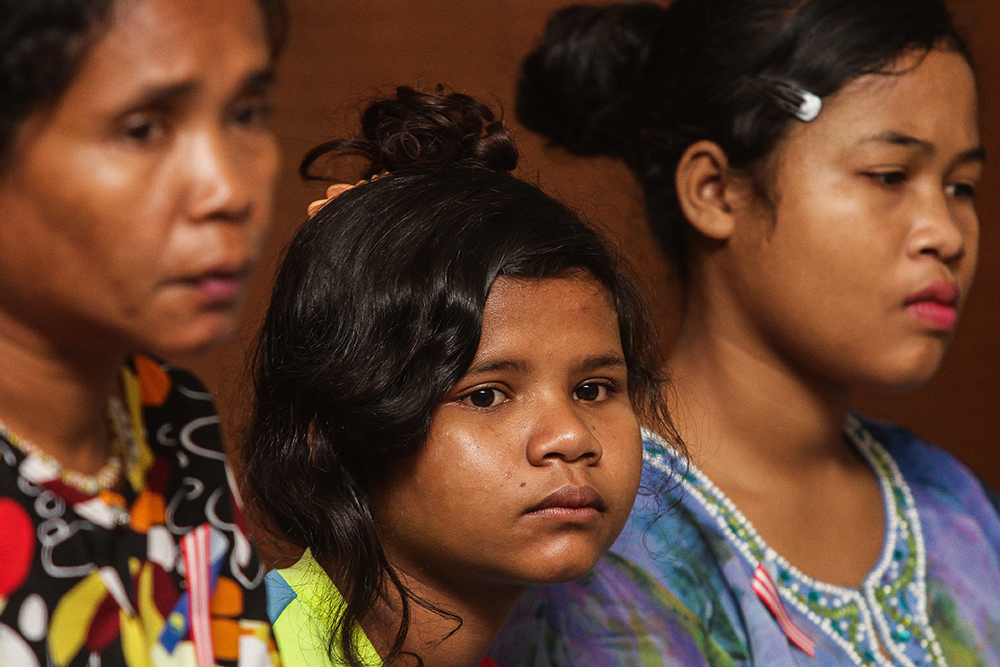KUALA LUMPUR, Aug 24 — Three years after seven Orang Asli children went missing from their boarding school in Pos Tohoi, family members of the victims called today for better welfare and education for their community.
At a press conference held by the family members of the six families, the atmosphere turned sombre when one of the parents, Midah Angah, broke down in tears, followed by other parents, when relating their experience in losing their offspring in the traumatic incident that killed five of the seven children.
Unable to speak, other family members, who reside in Kampung Gawin and Kampung Penad, Gua Musang, continued to share their concerns, such as the lack of schools within the interior areas of Orang Asli community, especially for children.
“We hope the government will provide a school in the interior area, so that we do not have to send our underaged children far away from us.
“Imagine those of other races. Can you imagine sending your young child far away at a very young age?” said Rosli Ayik, father of Linda Rosli, one of the seven children who went missing on August 23, 2015.
Linda and four others — Haikal Yaakob, 7, Ika Ayel, 9, Juvina David, Sasa Sobrie, 8 — were among those who did not survive the ordeal.
Haikal’s sister, Norieen Yaakob, and her friend Miksudiar Aluj, 14, were the only two survivors found on October 9, 2015, 47 days after the incident.
Juvina’s father, David Kuasan, urged for more awareness of the Orang Asli community, as he said many do not understand their ordeal living in the interior and the challenges faced by the community.
“When we send our children away, it is difficult for us to go and see them because it is very far. We do not have vehicles, and if we were to walk, it would take us one to two days to arrive. But we send them anyway because we want them to get their education and become successful.
“Teachers must also understand the children’s situation. They have to understand that they are still very young and also understand their language because some of us do not know how to converse in Bahasa at that age yet,” said David, who related his personal incident at 10-years-old when he was slapped by a teacher for not responding when asked in Bahasa Malaysia what his name was.
“At that time, I did not know how to speak Bahasa. Had the teacher spoken in my language, I would have been able to answer him,” he said at the Kuala Lumpur Selangor Chinese Assembly Hall here today.
The families of seven Orang Asli children, who disappeared in 2015 from their boarding school in Pos Tohoi, Gua Musang, five of whom died, had on August 13, filed negligence suits against the government and eight public officers at the Kota Baru High Court.
The defendants include public officers from the Education Department, the Orang Asli Development Department, and officers involved in the search and rescue mission.
The families were able to file the suit after engaging six lawyers from five different law firms to do pro bono work before the limitation period expires this month.
The case management date has been set for September 18 at the High Court in Kota Baru, Kelantan.






















